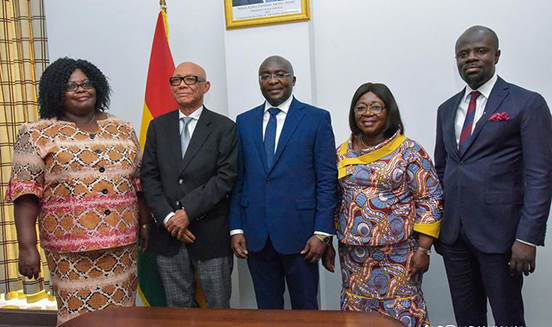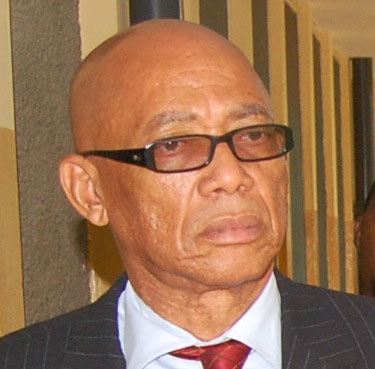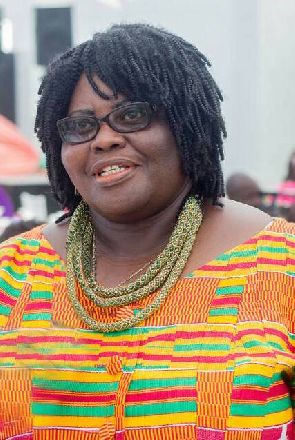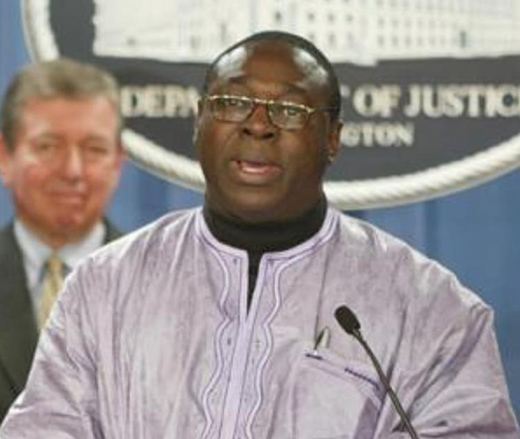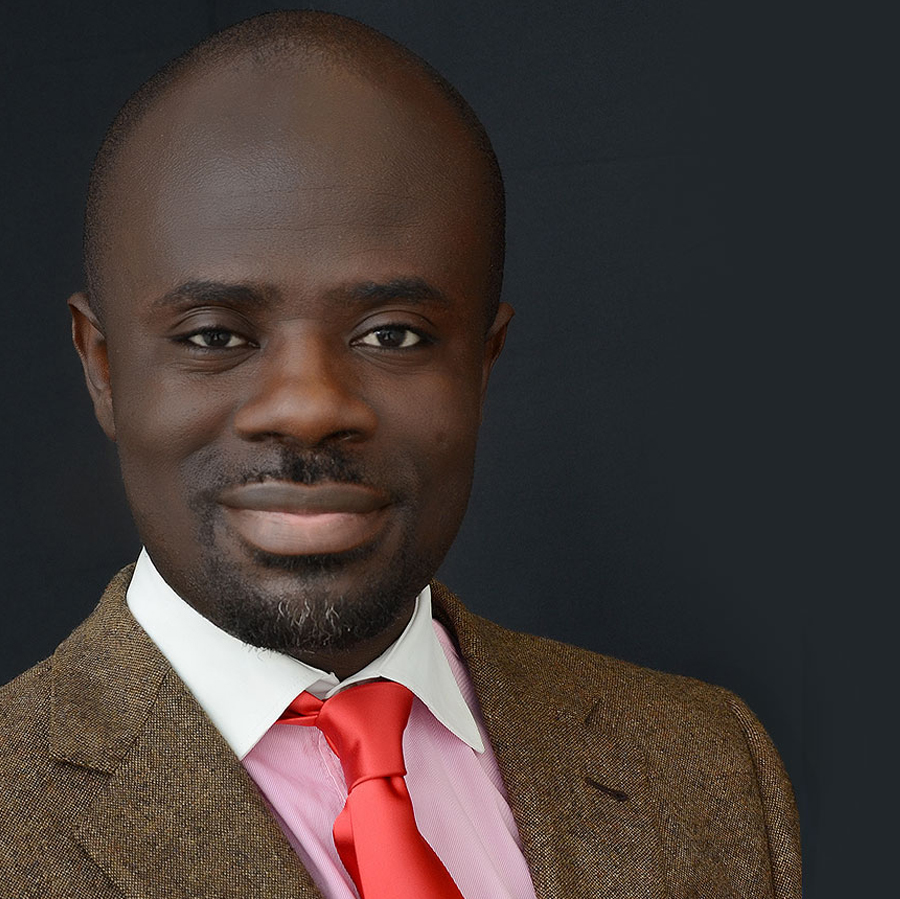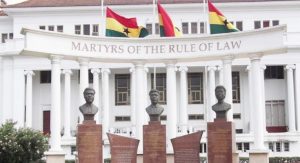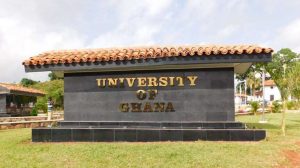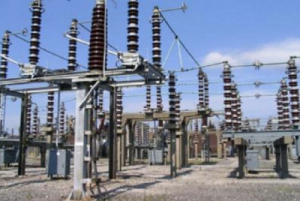Below is the profile of the members of the Commission of Inquiry set up by the government to investigate the violence that characterized the 31st January, 2019 by election at the Ayawaso West Wuogon Constituency.
Justice Emile Short – Chairman
Mr Justice Emile Francis Short, a University of London-trained lawyer was appointed Commissioner at the Commission on Human Rights and Administrative Justice (CHRAJ) in 1993 just when the country had transitioned into democratic rule. Mr Justice Emile Francis Short was born on February 6, 1943 in Cape Coast to Joseph Benedict Short, a Sierra Leonean lawyer and Wilhemina Smith, a Fante from Cape Coast.
He began schooling at the Jubilee School in Cape Coast and continued at the St Edward Primary School in Freetown, Sierra Leone. In 1955, he enrolled at the St Augustine’s College in Cape Coast, completing the sixth form in 1962.
After the sixth form, he went back to Sierra Leone to teach at the St Edward’s Secondary School in Freetown for about a year and left for the University of London where he studied for his LLB degree in Law.
He also studied at Lincoln’s Inn for his Barrister-at-Law certificate and was called to the bar in 1966. After that he enrolled at the London School of Economics and Politics and earned a Master’s degree in Law in 1967. From 1967 to 1968, he taught at the Middlesex Polytechnic in London.
In 1968, Mr Justice Short was appointed a state attorney or Crown Counsel as they were known then by the Sierra Leonean government but he did not stay in that position for too long. He went back to London and worked with a marine insurance and later left for the United States where he worked as an assistant editor of the second series of the American Law Reports.
In 1973, he came back home, enrolled at the Ghana School of Law for an orientation course in customary law and was called to the Ghana Bar that same year. He begun his legal practice in Cape Coast in 1974 where he was head of the legal firm Max-Idan Chambers. One of the notable cases he handled as a lawyer was the Capt Kojo Tsikata treason trial in 1976. In that year, there was an alleged attempted coup involving Capt Tsikata, Capt Joel Sowu, Lt Latzoo and others.
Mr Justice Short was also part-time lecturer in law at the Department of Business Studies, University of Cape Coast, from 1977 to 1984 and 1992 to 1993. He was also Vice President of the Central Regional branch of the Ghana Bar Association in 1990, member of the Ghana Law Reform Commission in 1979 and member of the Supreme Court Rules Committee from 1976 to 1978.
In 2004, Mr Justice Short was elected by the United Nations General Assembly, after being nominated by the government, to serve as a judge on the United Nations International Criminal Tribunal for Rwanda, which was set up in Arusha, Tanzania.
The tribunal was set up to try top level public officials who were alleged to have planned or orchestrated the genocide, crimes against humanity and war crimes in Rwanda in 1994. He returned to Ghana in 2009 after five years of service to the UN.
He was a Millenium Excellence Awards recipient and named Personality of the Year in 1999 for his competence and selfless devotion in the true service of the Ghanaian society. In 2000, Human Rights Watch awarded him the “International Recognition of Assertion of Independence and Impartiality.”
In 2005, he was awarded an honorary doctorate degree by the Northwestern University, Evanston, Illinois, for his leadership role at CHRAJ. Mr Justice Emile Francis Short was awarded the Officer of the Order of the Volta, one of Ghana’s highest national awards, in 2008 for distinguishing himself in human rights administration.
Mr Justice Short is married to Neguest, an Ethiopian. He has three children.
Prof. Henrietta Joy Abena Nyarko Mensa-Bonsu – Member
Prof. Henrietta Joy Abena Nyarko Mensa-Bonsu is a law professor and member of the United Nations Independent Panel On Peace Operations. She is a professor and senior law lecturer at the University of Ghana school of law. Prof. Mensa-Bonsu attended Wesley Girls High School, University of Ghana and Yale University , obtaining a Master of Laws (LLM) in 1985. She became a full law lecturer at the University of Ghana in 2002, and in 2003 was elected as a fellow into the Ghana Academy of Arts and Sciences.
She has used platforms available to her to advocate for peace to accelerate national development. She was the guest speaker at the Second Annual Peace Lecture put together by the Accra West chapter of the Rotary Club and the Institute for Democratic Governance (IDEG), where she spoke about the “need to nurture peace” without waiting “till the need arises for peace before we go for it”. She delivered the 2014 University of Ghana Alumni Association lecture on the topic “The African Union’s Peace and Security Architecture: A guarantor of peace and security on the continent”.
Prof Mensa-Bonsu married Mr Kwaku Mensa-Bonsu and they have three adult daughters, five grandchildren, three foster sons and three foster grandchildren.
She has served in a number of high-level national and international assignments. She served on the Legal Committee of the Ghana National Commission on Children; represented Ghana on the Inter-governmental Meeting of Experts on the Draft African Charter on the Rights of the Child, served as member of the President’s Committee on the Review of Educational Reforms, the National Reconciliation Commission and the Ghana Police Council.
She has also served on a number of public boards and councils, such as Ghana Broadcasting Corporation, New Times Corporation, the Ghana Medical and Dental Council, Methodist University College Council and the Board of Standard Chartered Bank. She served the Methodist Church, Ghana as member of the Committee on Law and Policy; and on the Presiding Bishop’s Advisory Council.
In the international arena, Prof Mensa-Bonsu served as the ECOWAS nominee on the International Technical Advisory Committee for the Liberian Truth and Reconciliation Commission, Vice-Chairperson of the ECOWAS Working Group on the Harmonisation of Business Laws on non-OHADA States, member of the OAU’s Committee of Eminent Jurists on the Lockerbie Case and the AU’s Committee of Eminent Jurists on the Hissene Habre Case. A high point was her appointment as the Deputy Special Representative of the United Nations Secretary-General for Rule of Law (DSRSG) in the United Nations Mission in Liberia (UNMIL) with the rank of Assistant-Secretary-General in 2007.
As Deputy Special Representative of the Secretary-General and Head of the Rule of Law Sector of the United Nations in Liberia for four years, she led the United Nations Peacekeeping Mission as its deputy head and also led the United Nations family on efforts to reconstruct the law-enforcement, legal and judicial sectors of post-conflict Liberia. Returning to the University of Ghana in 2011, she served as a Civilian Mentor to the ECOWAS Senior Mission Leadership Course training of the Civilian Component for the ECOWAS Standby Force (ESF), also on the UN’s Senior Mission Leadership Course. She recently accepted to serve on the Review Reference Group for the Project to prepare a ‘Guidance Note on Peace building’ for the United Nations system.
As an academic, Prof Mensa-Bonsu has researched and published extensively on Criminal Law and Criminal Justice, Family Law and Children’s Rights, been a visiting Lecturer at the Queens University of Belfast, Northwestern University School of Law, visiting Scholar at Leiden University in the Netherlands and the 2014 Diplomat-in-Residence at the School of Public and International Affairs of the North Carolina State University.
Professor Mensa-Bonsu has earned a number of academic awards and awards for meritorious service. These are: MaCallien Prize for the Best Graduating Student in Volta Hall(1980); McDougal Fellowship from the Yale University (1984); the Fulbright Fellowship (1991); and the ACU/UNITWIN Fellowship for Women (1994). Her awards for meritorious service include a Citation for Meritorious Service from the Ghana Armed Forces (2012), a Meritorious Service Award from the Akuafo Hall of the University of Ghana (2006); a Distinguished Award for Meritorious Service from the University of Ghana in 1999 and the International Association of Lions Clubs President’s Excellence Award (1998).
Prof. Mrs. Henrietta Mensa-Bonsu and Prof. Anne Marie Ofori were the first women to obtain first class in Law.
Currently, she teaches Criminal Law, Jurisprudence and Conflict Resolution Theory and Practice at the Faculty of Law, University of Ghana, and serves on a number of Boards of the University.
Mr. Patrick Kwateng Acheampong – Member
Patrick Kwateng Acheampong born 25 March 1951 is a barrister and was the Inspector General of Police of the Ghana Police Service (IGP) from March 2005 to January 2009.
Patrick Acheampong had his secondary education at the Adisadel College between 1962 and 1969 where he obtained his GCE O-level and A-level certificates. He then entered the University of Ghana where he obtained a law degree in 1972. He next attended the Ghana Police College, qualifying with the Certificate in Police Duties in 1976. He was also awarded the Sword of Honour for being the Best Cadet Officer in his batch. He qualified as a barrister from the Ghana Law School in 1977. In 1988, he studied at the Ghana Institute of Management and Public Administration, gaining the Certificate in management development. In 1990, he obtained the M.A. (Police Studies and Criminal Justice) degree from the University of Exeter in the United Kingdom where he passed with distinction in his written examinations.
In the Ghana Police Service, Acheampong first worked as a prosecutor at the law courts in Accra from September 1976. He was then appointed as the Executive Secretary to the IGP at the Ghana Police headquarters in June 1979. During the PNDC era, he became the Assistant Special Public Prosecutor at the Office of the Special Public Prosecutor of the National Public Tribunals of Ghana, a function he performed till June 1986. He was the District Police Commander for Tema Community One from May 1982 to June 1984. From May to August 1986, he became the Accra Central District Police Commander.
He then worked as the Officer in charge of Special Duties at the National Police Headquarters until October 1988. He was next posted to the Northern Region of Ghana as the Deputy Regional Police Commander in February 1990, a position he held for the next two years. Acheampong was the Regional Police Commander in the Northern and then the Ashanti Regions between February 1992 and October 1996. He then worked at the National Police Headquarters in Accra as the Deputy Commissioner in charge of Administration
During his service on international duties, Mr. Acheampong was the Deputy Contingent Commander of the United Nations Peace Keeping Operations in Bosnia and Herzegovina for a year beginning March 1997. Between March 1997 and May 1998, he was an instructor at the UNCIVPOL Pre-Mission Training School at Sarajevo, Bosnia while attached to the ‘Sarajevo Center’ Police Station Investigations Unit. He performed the same instructor role at the UNCIVPOL Pre-Mission Training School at Zagreb, Croatia between May and September 1998.
In September 1998, he was appointed the Commandant of the Ghana Police College. He is credited with overseeing the re-organisation and restructuring of the college. He became the Director, Criminal Investigation Department (CID) in February 2001. It was during his tenure that the self-acclaimed serial murderer Charles Quansah was arrested. In August 2002, he became the Deputy Inspector-General of Police (Operations) and was also the Acting Chairman of the National Election Task Force which supervised the security arrangements for the 2004 presidential and parliamentary elections in Ghana in December 2004. On 25 March 2005, he was appointed by President John A. Kufuor as the Inspector General of Police. He retired in 2009.
Mr. E. Kofi Abotsi – Secretary
Mr. E. Kofi Abotsi is a lawyer and public intellectual and also the immediate past Dean of the saw school at the Ghana Institute of Management & Public Administration (GIMPA).
Prior to assuming this position, he was a senior lecturer at the Institute and had also previously lectured at the Kwame Nkrumah University of Science & Technology(KNUST). Among various other positions previously held, Kofi Abotsi was a special counsel to the Constitutional Review Commission of Ghana and lead consultant to the structural and system reform of the Attorney-General’s Department & Ministry of Justice (MoJ). In this regard, has closely worked with and advised the government of Ghana on key aspects of justice sector reform including penal systems restructuring.
He holds a bachelor of Laws (LLB) Degree and Barrister-at-Law Certificate from the University of Ghana and the Ghana School of Law respectively as well as a Master of Laws (LL.M) Degree from the Harvard Law School in the United States. Mr. Abotsi also holds several publications in leading international peer reviewed law journals including writings on international trade law.
Mr. Abotsi has over the years been widely consulted by a number of international governmental organizations, Ghana government agencies, and civil society entities foreign universities.
He sits on boards of private and public corporate concerns including being the board chair of the Chief Executives (CEO) Network of Ghana. Mr. Abotsi has and continues to visit a number of universities and international organizations on visiting scholarly arrangements and taught and/or given lectures on such visits including the Fordham Law School, the Indiana Law School and the University of Milano, Bicocca, Milan as well as the international criminal court in 2017.
He also maintains an active professional practice of the law and is in this regard the managing partner at Axis Legal, a firm of corporate solicitors and barristers. In this capacity, he has advised a wide diversity of clientele including sovereign entities, transnational corporations, as well as governmental and private entities on complex oil and gas transactions, among others.

